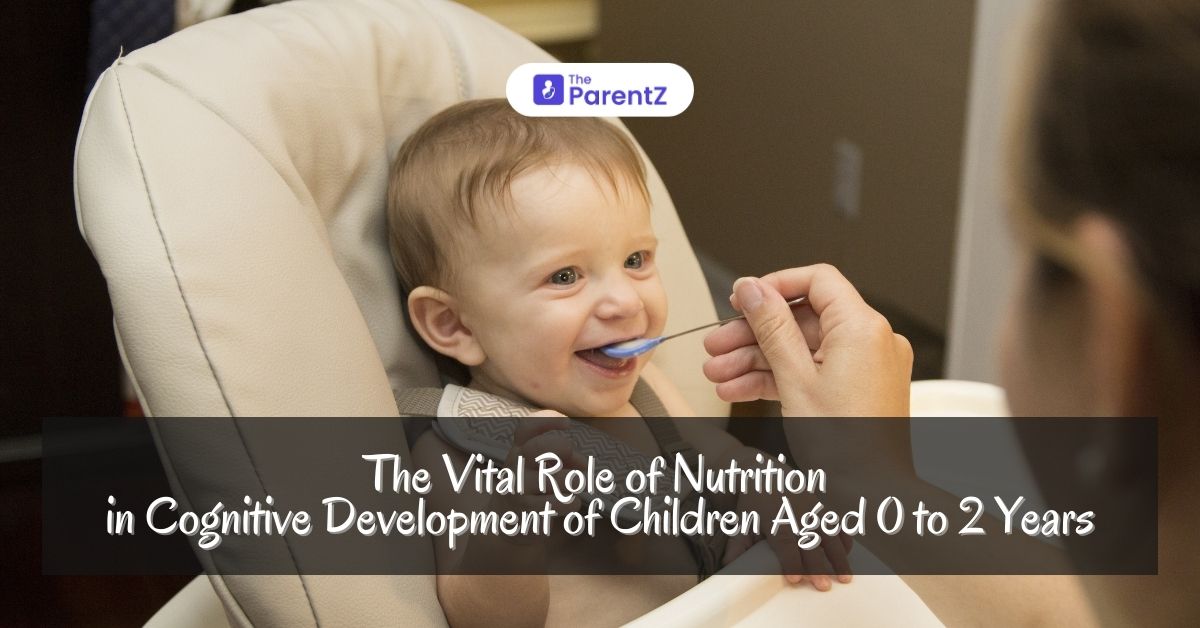Nutrition is indispensable in children’s cognitive development, particularly during the critical ages of 0 to 2 years.
Cognitive development is closely related to the growth and development of the brain, which has occurred very rapidly in the third trimester of pregnancy until the age of 2 years. It’s crucial to understand that malnutrition from infancy to 2 years can significantly reduce brain cells by 15-20%, leading to lasting effects on cognitive abilities.
This period is characterized by rapid brain growth and development. Any nutritional inadequacies during this time can have profound and enduring effects on a child’s cognitive abilities and overall well-being.
However, the research also underscores the transformative potential of adequate nutrition during these formative years, which can prevent cognitive delays, support brain development, and promote long-term health and productivity.
The Impact of Malnutrition on Cognitive Development
Early childhood malnutrition is a significant concern, as it can lead to delays in cognitive abilities, impacting not only immediate learning and memory but also long-term intellectual and emotional health. Undernourished children may exhibit cognitive abnormalities, underscoring the urgent need to address nutritional deficiencies as early as possible.
Malnutrition during the first five years of life can result in reduced brain size, fewer neurons, and impaired synaptic connectivity, all of which are critical for cognitive function.
Studies have consistently shown that children who experience malnutrition early in life are at a higher risk of cognitive impairments. For instance, they may struggle with attention, memory, and problem-solving skills, essential for academic success and daily functioning. These deficits can persist into adulthood, affecting educational attainment, job performance, and social interactions.
The Role of Micronutrients in Cognitive Performance
Micronutrients, such as vitamins and minerals, play a crucial role in cognitive development. Deficiencies in critical micronutrients like iron, iodine, zinc, and vitamin B12, among others, have been linked to cognitive impairments in young children. Several intervention studies have demonstrated the positive impact of nutritional support on cognitive development in malnourished children.
Role of Iron in Cognitive Development
Iron plays a crucial role in cognitive development, especially in toddlers. Anaemia in this age group is linked with delays in psychomotor skills and mental development, affecting how they interact with objects.
Studies have shown that iron supplementation can increase weight gain and improve children’s cognitive development. For example, providing iron supplements to anaemic children has been shown to improve attention, concentration, and intelligence quotient (IQ) scores.
Studies involving infants and young children with insufficient iron levels reveal lower performance on tests measuring cognitive and physical development, alongside increased anxiety, reduced attention, and limited social engagement.
Role of Iodine in Cognitive Development
Iodine deficiency disorder (IDD) is linked with a range of conditions, including diminished cognitive abilities, slowed psychomotor function, neurological impairment, and cretinism.
When considering iodine’s role in cognitive development, it influences thyroid function in expectant mothers and newborns, subsequently impacting the neuro-intellectual growth of babies and toddlers. The severity of the impairment escalates with the extent of iodine deficiency, with maternal hypothyroxinaemia in early pregnancy emerging as a pivotal factor in neurological harm.
Intriguingly, a selenium deficiency, combined with insufficient iodine, partially alleviates neurological damage but worsens severe hypothyroidism in cretinism cases.
It’s paramount to recognize that iodine deficiency remains the foremost preventable cause of brain damage and intellectual disability on a global scale.
Role of Zinc in Cognitive Development
Zinc deficiency correlates with decreased mental capacity, hindered academic achievement, impaired cognitive function, shorter attention spans in educational settings, and diminished overall cognitive abilities.
Role of Vitamin B12 in Cognitive Development
In infants, severe vitamin B12 deficiency manifests as a range of neurological symptoms, such as irritability, failure to thrive, apathy, loss of appetite, and developmental regression, all showing remarkable improvement upon supplementation.
Role of fat in Cognitive Development
In cognitive development, the presence of polyunsaturated fatty acids has been linked to enhanced mental and psychosocial functioning in children. At the same time, an elevated cholesterol intake has been associated with diminished performance.
Role of Carbohydrates in Cognitive Development
Glucose, a type of saccharide, has been extensively studied for its impact on human cognitive abilities. It influences reaction times, verbal and visual fluency, attention span, and declarative memory.
Role of Folic Acid in Cognitive Development
Although the precise role of folic acid in cognitive development remains debated among researchers, its deficiency has been conclusively linked to neural tube defects and other congenital anomalies.
Role of breastfeeding in Cognitive Development
Research published in the Journal of Paediatrics found that breastfeeding enhances cognitive development in total and premature infants, leading to improved neurodevelopmental outcomes. Breastfed children exhibit superior intelligence, and the duration of breastfeeding influences cognitive abilities.
This advantage stems from breast milk’s essential fatty acids like DHA and arachidonic acid, which are crucial for enhancing eyesight and motor responses in infants and young children but are absent in formula and cow’s milk. Additionally, lactose in breast milk supports central nervous system development.
Nutrition is pivotal in brain development, supplying vital nutrients and energy for sustained function. Insufficient nutrients, like other bodily tissues and organ systems, adversely affect brain development. Enhancing intellectual capacity and mental function is crucial for human survival, underscoring the importance of studying factors that promote cognitive development for sustainable progress.





Be the first one to comment on this story.